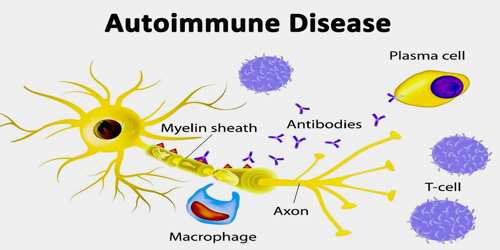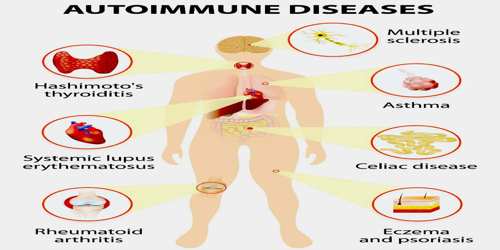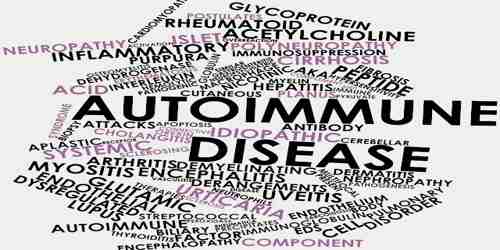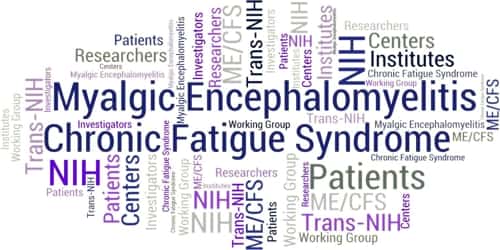Autoimmune Disease
Definition
Autoimmune disease is a disease in which impaired function and the destruction of tissue are caused by an immune reaction in which abnormal antibodies are produced and attack the body’s own cells and tissues. Autoimmune diseases include a wide variety of disorders, including many disorders of connective tissue, such as systemic lupus erythematosus and rheumatoid arthritis. Autoimmune diseases are more frequent in women than in men. It is felt that the estrogen of females may influence the immune system to predispose some women to autoimmune diseases. Furthermore, the presence of one autoimmune disease increases the chance for developing another simultaneous autoimmune disease.

The cause is generally unknown. Some autoimmune diseases such as lupus run in families, and certain cases may be triggered by infections or other environmental factors. Some common diseases that are generally considered autoimmune include celiac disease, diabetes mellitus type 1, Graves’ disease, inflammatory bowel disease, multiple sclerosis, psoriasis, rheumatoid arthritis, and systemic lupus erythematosus. Patients with autoimmune diseases frequently have unusual antibodies circulating in their blood that target their own body tissues. The diagnosis can be difficult to determine.
Some autoimmune diseases are more common in certain ethnic groups. For example, lupus affects more African-American and Hispanic people than Caucasians.
Certain autoimmune diseases, like multiple sclerosis and lupus, run in families. Not every family member will necessarily have the same disease, but they inherit a susceptibility to an autoimmune condition. Because the incidence of autoimmune diseases is rising, researchers suspect environmental factors like infections and exposures to chemicals or solvents might also be involved.
Types, Sign and Symptoms of Autoimmune disease
Autoimmune diseases have a wide variety of different effects. There are more than 80 different autoimmune diseases. Here are 14 of the most common ones.

- Type 1 Diabetes: The pancreas produces the hormone insulin, which helps regulate blood sugar levels. In type 1 diabetes, the immune system attacks and destroys insulin-producing cells in the pancreas. High blood sugar can damage blood vessels, as well as organs like the heart, kidneys, eyes, and nerves.
- Rheumatoid Arthritis (RA): In rheumatoid arthritis (RA), the immune system attacks the joints. This attack causes redness, warmth, soreness, and stiffness in the joints.
- Psoriasis/psoriatic arthritis: Skin cells normally grow and then shed when they’re no longer needed. Psoriasis causes skin cells to multiply too quickly. The extra cells build up and form red, scaly patches called scales or plaques on the skin. About 30 percent of people with psoriasis also develop swelling, stiffness, and pain in their joints. This form of the disease is called psoriatic arthritis.
- Systemic lupus erythematosus (lupus): Although doctors in the 1800s first described lupus as a skin disease because of the rash it produces, it actually affects many organs, including the joints, kidneys, brain, and heart. Joint pain, fatigue, and rashes are among the most common symptoms.
- Multiple Sclerosis: Multiple sclerosis (MS) damages the myelin sheath the protective coating that surrounds nerve cells. Damage to the myelin sheath affects the transmission of messages between your brain and body. This damage can lead to symptoms like numbness, weakness, balance issues, and trouble walking. The disease comes in several forms, which progress at different rates. About 50 percent of people with MS need help walking within 15 years after getting the disease.
- Addison’s Disease: Addison’s disease affects the adrenal glands, which produce the hormones cortisol and aldosterone. Having too little of these hormones can affect the way the body uses and stores carbohydrates and sugar. Symptoms include weakness, fatigue, weight loss, and low blood sugar.
- Inflammatory Bowel Disease: Inflammatory bowel disease (IBD) is a term used to describe conditions that cause inflammation in the lining of the intestines. Each type of IBD affects a different part of the GI tract.
- Sjögren’s syndrome: This condition attacks the joints, as well as glands that provide lubrication to the eyes and mouth. The hallmark symptoms of Sjögren’s syndrome are joint pain, dry eyes, and dry mouth.
- Hashimoto’s thyroiditis: In Hashimoto’s thyroiditis, thyroid hormone production slows. Symptoms include weight gain, sensitivity to cold, fatigue, hair loss, and swelling of the thyroid (goiter).
- Graves’ disease: Graves’ disease attacks the thyroid gland in the neck, causing it to produce too much of its hormones. Thyroid hormones control the body’s energy usage, or metabolism. One common symptom of this disease is bulging eyes, called exophthalmos. It affects up to 50 percent of people with Graves’ disease.
- Myasthenia gravis: Myasthenia gravis affects nerves that help the brain control the muscles. When these nerves are impaired, signals can’t direct the muscles to move. The most common symptom is muscle weakness that gets worse with activity and improves with rest. Often muscles that control swallowing and facial movements are involved.
- Celiac disease: People with celiac disease can’t eat foods containing gluten — a protein found in wheat, rye, and other grain products. When gluten is in the intestine, the immune system attacks it and causes inflammation. Celiac disease affects about 1 percent of people in the United States. A larger number of people have gluten sensitivity, which isn’t an autoimmune disease, but can have similar symptoms like diarrhea and abdominal pain.
- Pernicious anemia: This condition affects a protein called intrinsic factor that helps the intestines absorb vitamin B-12 from food. Without this vitamin, the body can’t make enough red blood cells. Pernicious anemia is more common in older adults. It affects 0.1 percent of people in general, but nearly 2 percent of people over age 60.
- Vasculitis: Vasculitis happens when the immune system attacks blood vessels. The inflammation that results narrows the arteries and veins, allowing less blood to flow through them.
Environmental events can trigger some cases of autoimmune diseases such as exposure to radiation or certain drugs which can damage tissues of the body. Infection can also be a trigger of some autoimmune diseases for example Lupus which is thought to be a milder version of an idiopathic disorder where there is an increased production of antihistone antibodies.
Treatments of Autoimmune Diseases
Treatment depends on the type and severity of the condition. Non steroidal anti-inflammatory drugs (NSAIDs) and immunosuppressants are often used. Intravenous Immunoglobulin may also occasionally be used. While treatment usually improves symptoms they do not typically cure the disease.
Reference:
















